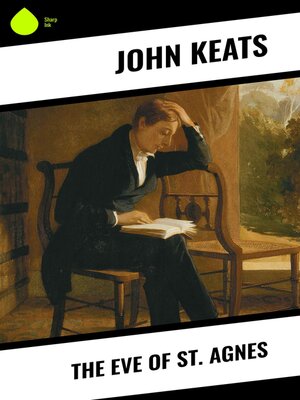
Sign up to save your library
With an OverDrive account, you can save your favorite libraries for at-a-glance information about availability. Find out more about OverDrive accounts.
Find this title in Libby, the library reading app by OverDrive.



Search for a digital library with this title
Title found at these libraries:
| Library Name | Distance |
|---|---|
| Loading... |
In 'The Eve of St. Agnes,' John Keats weaves a rich tapestry of medieval romance infused with sensual imagery and intricate symbolism. The poem unfolds on the titular night, where young Madeline, seeking a vision of her future lover, adheres to a romantic folk tradition that promises the arrival of true love. Keats employs opulent language, blending vivid visuals with a dreamy, almost dreamlike narrative style. This work sits within the context of the Romantic Movement, emphasizing emotion, nature, and the supernatural while responding to the burgeoning interests in medievalism and folklore. John Keats, born in 1795, was greatly influenced by his experiences of love, loss, and longing; these themes resonate deeply throughout the poem. His somewhat brief but fervent literary career was marked by a pursuit of beauty and a fascination with the transcendental. Keats's own tumultuous relationships and grappling with mortality imbue 'The Eve of St. Agnes' with an evocative poignancy that reflects his personal tragedies, For those who seek to delve into the depths of desire, yearning, and the mystical interplay between love and fate, 'The Eve of St. Agnes' stands as a quintessential work of English Romanticism. Keats's lyrical prowess will enchant lovers of poetry, inviting readers to explore the delicate interplay of reality and imagination.







